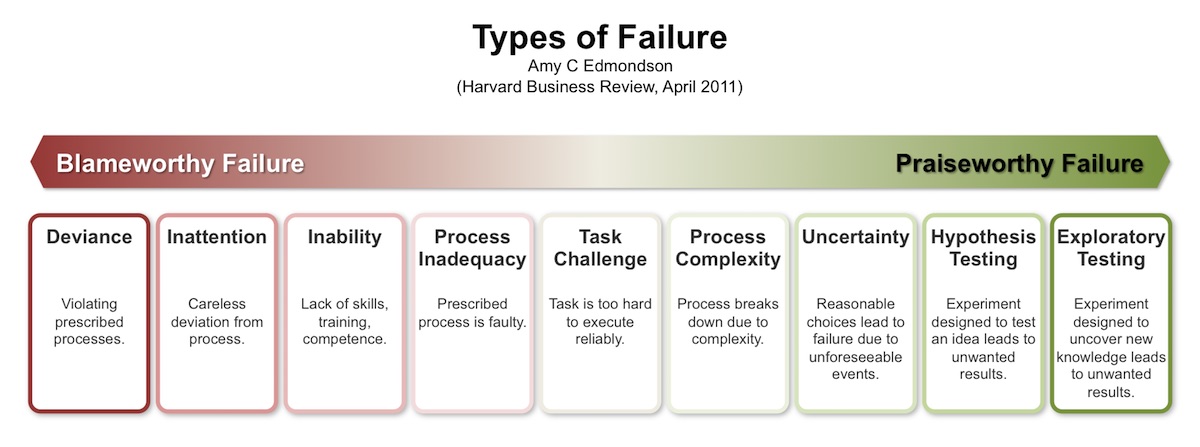“A sophisticated understanding of failure’s causes and contexts will help to avoid the blame game and institute an effective strategy for learning from failure. Although an infinite number of things can go wrong … mistakes fall into three broad categories:
Preventable - Most failures in this category can indeed be considered “bad.” They usually involve deviations from spec in the closely defined processes of high-volume or routine operations … With proper training and support, employees can follow those processes consistently. When they don’t, deviance, inattention, or lack of ability is usually the reason. But in such cases, the causes can be readily identified and solutions developed.
Complexity-related – A large number of …failures are due to the inherent uncertainty of work. A particular combination of needs, people, and problems may have never occurred before … To consider them bad is not just a misunderstanding of how complex systems work; it is counterproductive. Avoiding consequential failures means rapidly identifying and correcting small failures.
Intelligent - Failures in this category can rightly be considered “good,” because they provide valuable new knowledge that can help an organization leap ahead of the competition and ensure its future growth—which is why the Duke University professor of management Sim Sitkin calls them intelligent failures. They occur when experimentation is necessary: when answers are not knowable in advance because this exact situation hasn’t been encountered before and perhaps never will be again.”






0 Risposte a “Non tutti gli errori sono uguali: regole dal business allo sport”